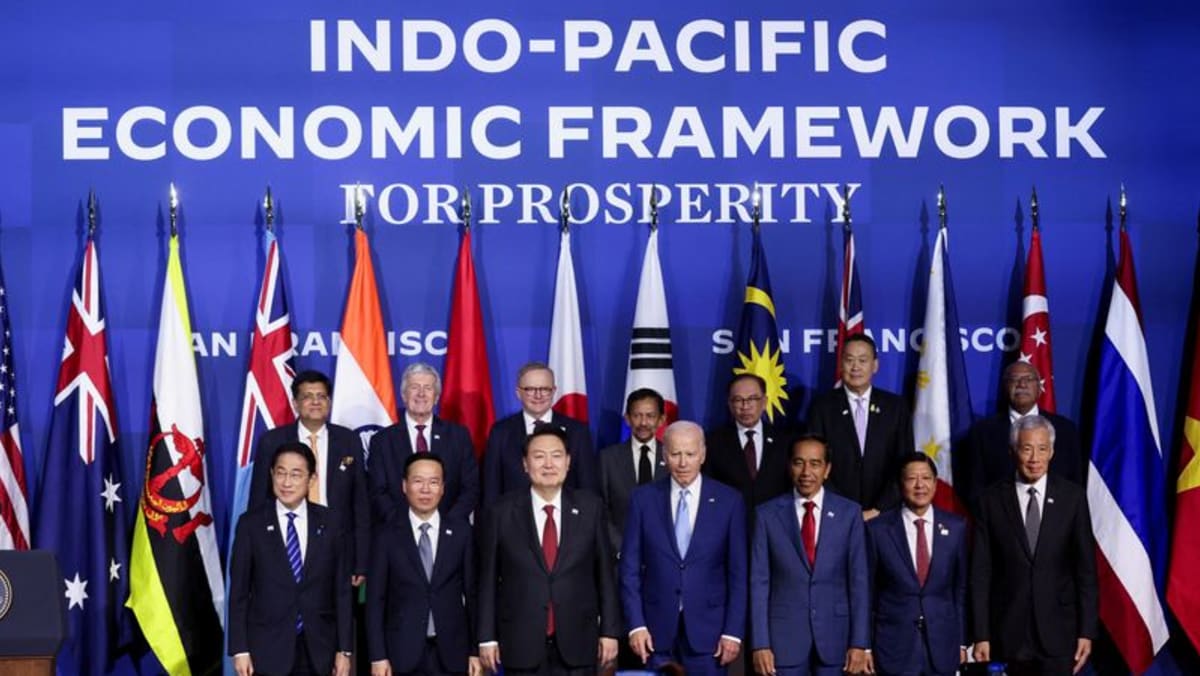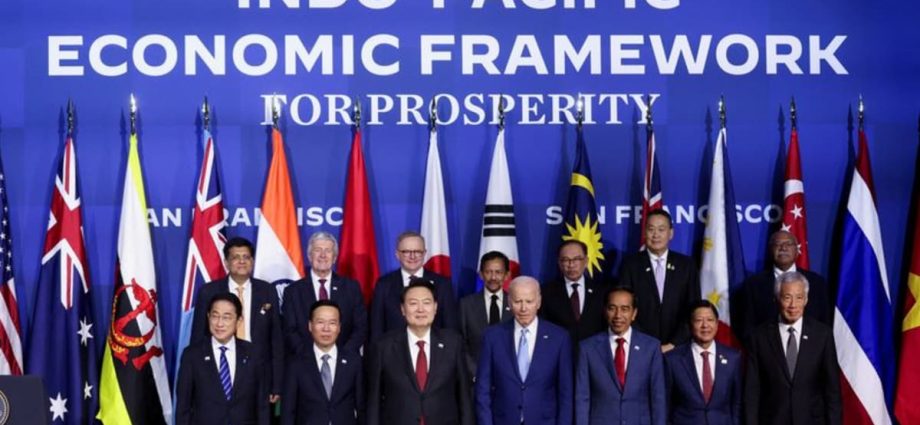
Besides official APEC business, global leaders are taking the opportunity to meet face-to-face during the APEC week, with US President Joe Biden and Chinese President Xi Jinping concluding high-stakes talks on Wednesday.
Leaders from the Indo-Pacific Economic Framework for Prosperity (IPEF) also met and signed a number of agreements ranging from clean energy, supply chain resilience and anti-corruption measures.
At the summit, it further launched a dialogue on critical minerals to foster closer collaboration on strengthening IPEF critical mineral supply chains.
IPEF, a group of 14 nations including Singapore, was established by Mr Biden’s administration to bolster economic engagement with Asia after former president Donald Trump quit a regional trade pact in 2017. It was first launched in Tokyo in May last year.
However, the 13 IPEF members involved in trade talks, excluding India, did not come to a deal at this APEC. Members could not agree on improving labour and environmental standards or compliance, people briefed on the talks said.
In a statement on Thursday, IPEF leaders said that they have made progress on and continue to work towards a “mutually beneficial Trade Pillar outcome” benefitting all segments of society.
At an IPEF meeting on Thursday, Mr Lee said that he welcomes progress on the IPEF trade deal.
“Trade is the lifeblood of the global economy. And the trade pillar is an integral part of the IPEF agreement and of US’ economic and strategic engagement with the region,” he said.
“But developing new and creative approaches in trade policy is not easy, and it takes time in order to carefully work through sensitive areas and to choose the best moment to commit the deal.
“Therefore, we look forward to further progress in the negotiations, as well as some tangible cooperation next year.”
Singapore will continue to work closely with partners to implement the IPEF agreements and initiatives, he said.
“The IPEF should continue to be open, inclusive and flexible, including towards new members,” said Mr Lee.

